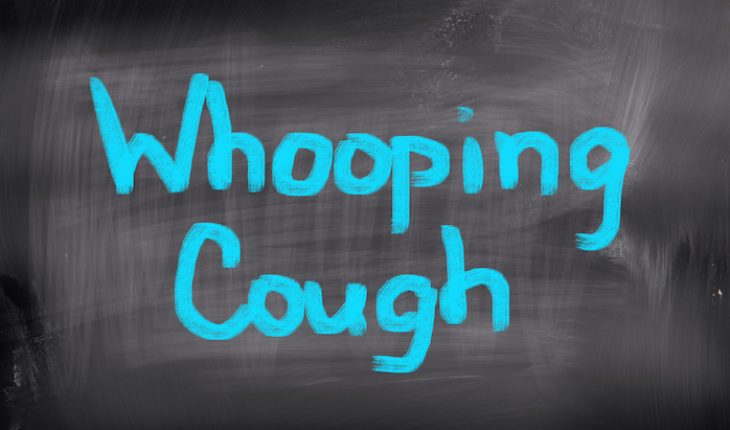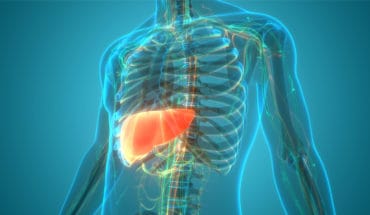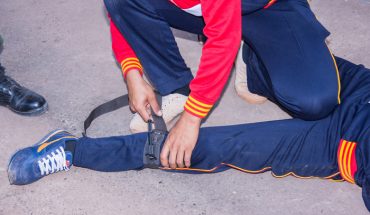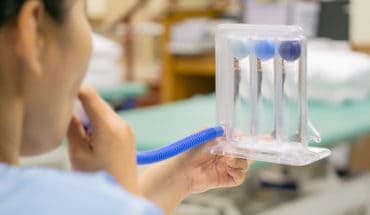The Bordetella pertussis bacteria, which causes whooping cough, is a highly contagious bacterial infection of the lungs and airways which is spread through infected droplets in the air. In recent years, there have been spikes of incidence of this infection, despite a vaccination programme.
Symptoms only develop 6-20 days after exposure to the virus. At first, cold-like symptoms appear including runny nose, cough, sneezing, watery eyes, sore throat and raised temperature. These may last for a week or two before onset of the more severe ‘paroxysmal’ stage, when a child coughs up thick phlegm making a ‘whoop’ sound with each sharp intake of breath. It isn’t unusual for a child to have 12-15 bouts of spasmodic cough a day, usually lasting a minute, and sometimes accompanied by vomiting and turning blue. This secondary stage usually lasts for two weeks, but this can be longer. It has been known as the “100-day cough”.
Whooping cough can be treated successfully with antibiotics and most people make a full recovery. Adults diagnosed with this illness should stay home from work and children kept home from school, until they have taken effective antibiotics for at least five days, when they can no longer infect others. As a precautionary measure, a GP may decide to give antibiotics to other members of the household, or recommend that they be protected with a booster shot of vaccine. GPs sometimes decide against prescribing antibiotics if they decide you are in the late stage of infection, as you will not be infectious and taking them then makes little difference to symptoms.
Whooping cough causes a nasty cough which is unpleasant, but in some rare cases, it can be fatal, especially for young babies who are most at risk of complications, because of the severe breathing difficulty they suffer. The sound of a baby struggling to breathe with this terrible disease is distressing. A hacking cough is sometimes followed by silence and then the ‘whoop’ as the baby fights to breathe in. Infants younger than six months old don’t always whoop after coughing, but they may gag, choke and become blue in the face and occasionally stop breathing. Medical help should be sought urgently if a young baby has problems breathing, or suffers fits.
Vaccination is the best way for a child to avoid catching whooping cough. In the UK infants receive a whooping cough vaccination in three separate jabs at two, three and four months of age and a pre-school booster at around three and a half years old. This enables babies to build up a high degree of protection after their third dose of vaccine, at four months. Their immunity will gradually wane as they grow up and some vaccinated adults have caught whooping cough.
To protect young babies who are most at risk of serious complications of whooping cough, it is now recommended that pregnant mothers receive whooping cough vaccine in the last trimester of their pregnancy.
- Whooping it up - 13th July 2016






